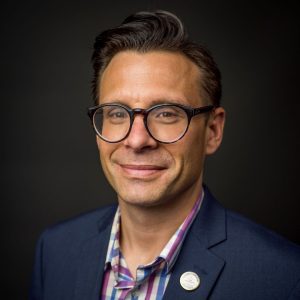Small group prayer can be some of the most meaningful moments of your group’s weekly time together. Prayer builds bonds between members of the group, encourages faith in God’s provision and care, and invites God to interject in our lives in a powerful way. As Bible teachers, you know that prayer requests are an essential part of your class, but sometimes the members’ relaying of these requests can take up too much of the allotted group time. We often face the dilemma of having to cut prayer short or miss out on part of the Bible lesson.
While there are certainly times when you as the teacher need to allow for ample prayer request time for the group as a whole, here are a few ways that you can create meaningful prayer without using up all of the time allotted for your lesson.
Pair Share Prayer
Break your group up into small groups of two or three people and ask them to share prayer concerns and pray for one another. Give a predetermined amount of time and remind them to allow each member of the group to share. Provide a verbal cue a few minutes prior to the time’s end to ensure that they pray for the concerns, not just share them aloud. Wrap the time up with a prayer for the group as a whole.
Text Prayer Chain
Move on-going prayer concerns to a group text message that can be added to throughout the week. Group members can add their own requests or type out the prayer for the listed concern. The group text can be a great way to keep your group engaged with one another and with God throughout the week while also making the prayer time slightly more efficient during the groups’ weekly gathering.
Prayer Request Summary Jump Start
For concerns that you are already aware of within the group, summarize them prior to opening the floor up for new prayer requests. By giving a brief comment about each prayer concern, you can ask for an update or just ensure that the group remembers to pray for that need. Usually, these ongoing needs are a deep concern for many in the group so summarizing them also provides instruction on how you can shepherd the groups’ mindset as they reflect on the need.
Pray for a Name
It may be appropriate in some instances to pray for a group of people in a more generic way. Perhaps you ask the group for names of lost family, friends, and neighbors and pray for them as a group. You can do the same for people experiencing health crises, family difficulties, or other categories of concern. While this does not allow for specific issues to be explained, it does allow for people to participate in prayer for people that they know and love.
Read More

Hope in Suffering
Gateway student Matt Bodden is an evangelist who is ready to answer the question of suffering with the gospel.

The Gateway Journal of Theology Inaugural Issue
Read all new articles in the inaugural issue of The Gateway Journal of Theology.
Listen
Prophets | Daniel Part 2
Now with the historical portion of Daniel done, Dr. Wegner takes us through the visions of beasts and years. All these figures intending to show us something. What does it all tell us about God?

Theology and Missiology with Dr. Peter Lillback
Rev. Dr. Peter Lillback, president of Westminster Theological Seminary, PA, and founder of The Providence Forum, joins Dr. Hopkins to chat about the inclusion of young children during the main services in church, the religion and theology of George Washington, and the

Watch

Jonathan Edwards and the Asbury Revival
Chris Chun and Chris Woznicki discuss the signs of true revival, signs of the work of the Holy Spirit, and why it is important to critically assess the characteristics of revival in a spirit of charity.

Jonathan Edwards and the Baptists | Douglas Sweeney, Nathan Finn and Chris Chun
Dr. Douglas Sweeney and Dr. Nathan Finn joined Dr. Chris Chun for a panel discussion on Jonathan Edwards, recorded live at the SBC Annual Meeting in Anaheim.




